File Info
| Exam | BTA Certified Blockchain Solution Architect |
| Number | CBSA |
| File Name | Blockchain.CBSA.PracticeTest.2019-07-20.98q.tqb |
| Size | 636 KB |
| Posted | Jul 20, 2019 |
| Download | Blockchain.CBSA.PracticeTest.2019-07-20.98q.tqb |
How to open VCEX & EXAM Files?
Files with VCEX & EXAM extensions can be opened by ProfExam Simulator.
Coupon: MASTEREXAM
With discount: 20%
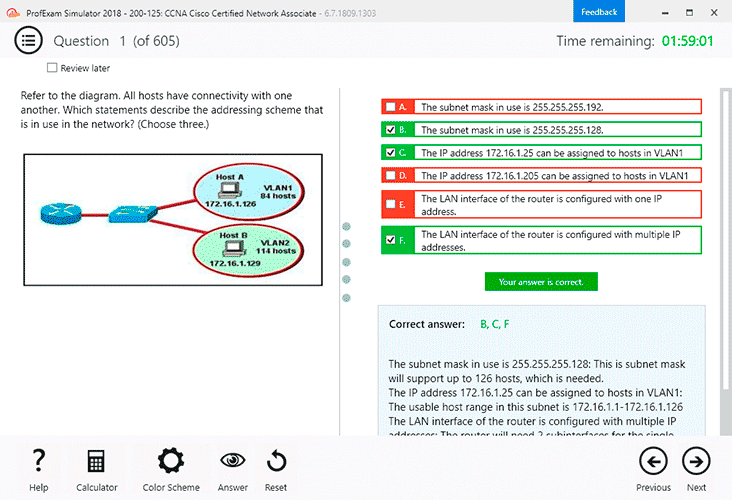
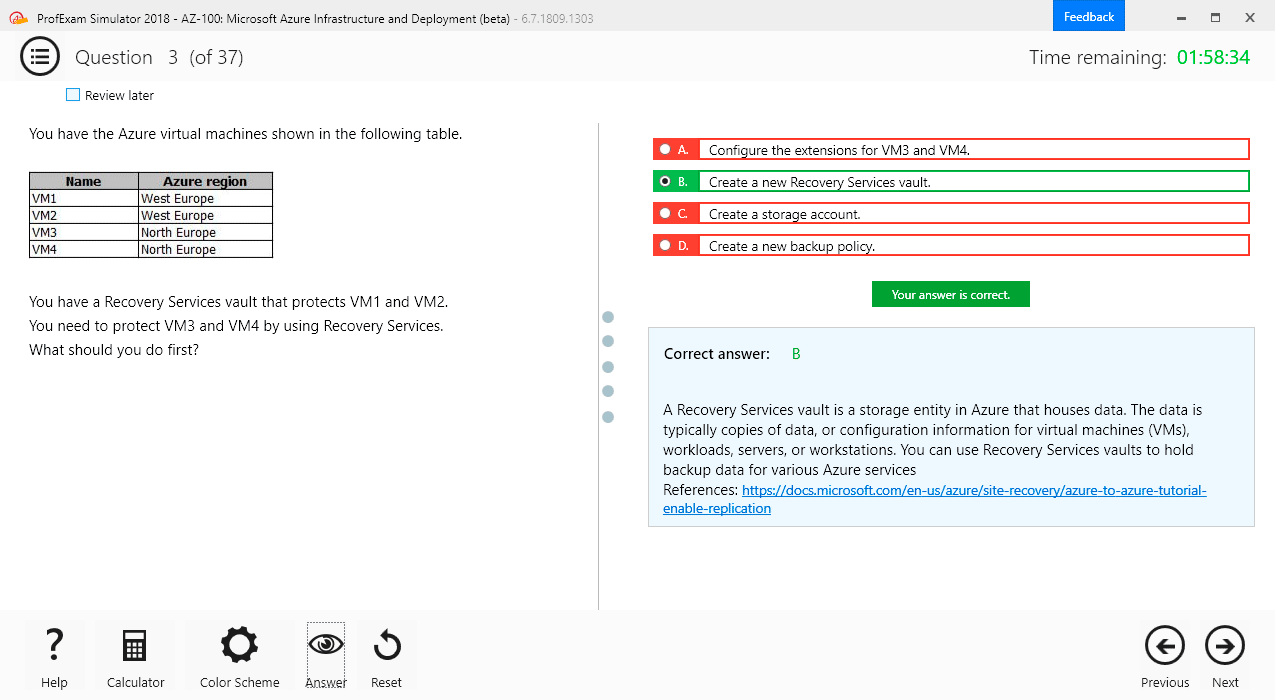
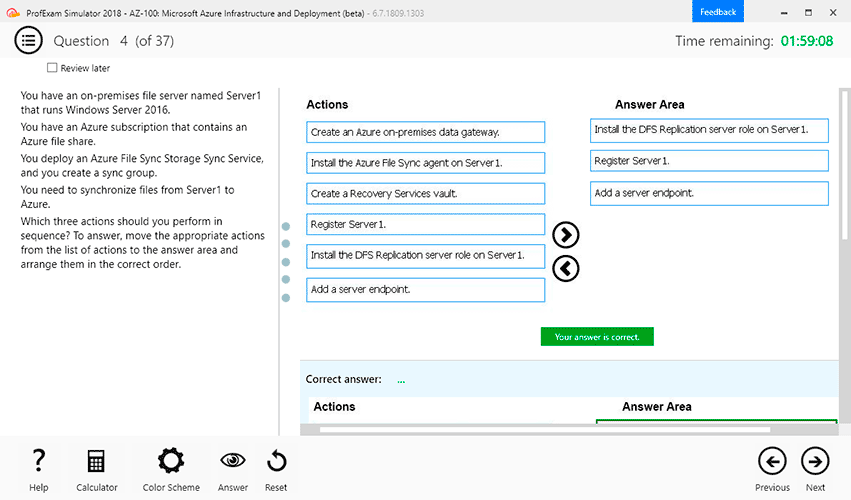
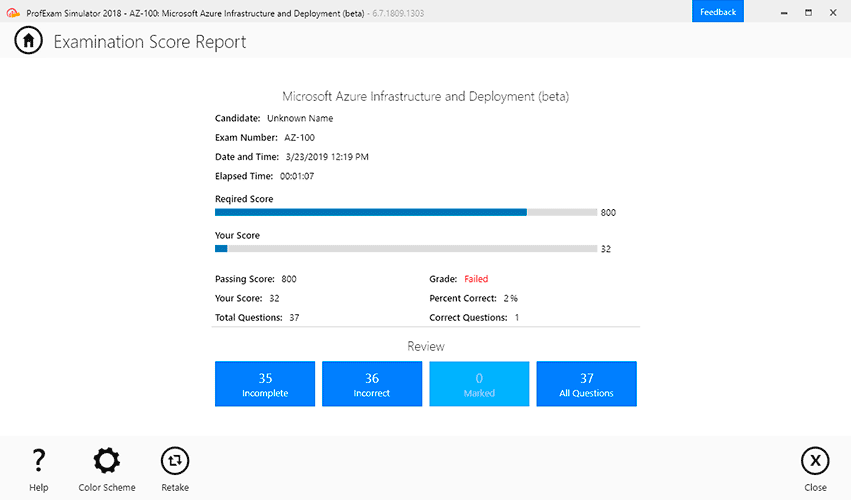
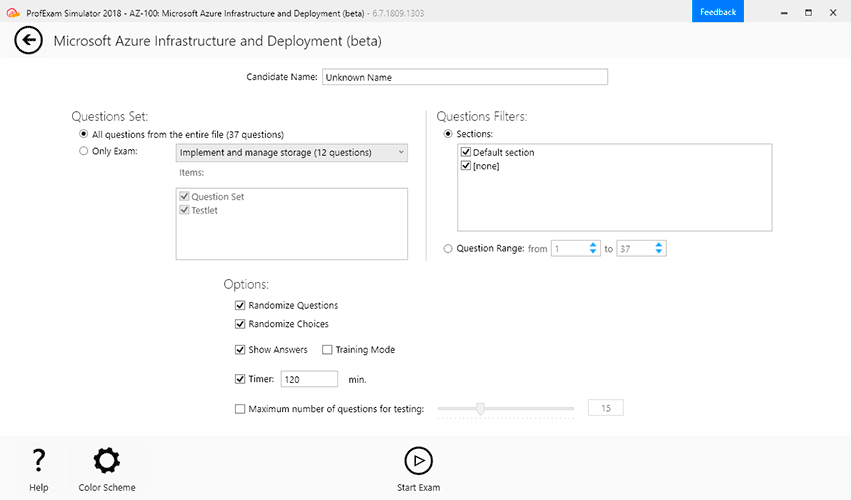
Demo Questions
Question 1
What is a logic gate in electronics and computer science?
- A logic gate usually takes in 2 inputs and gives out 1 output. The inputs and outputs are binary values, meaning they can be both 1 and 0.
- A logic gate usually takes in 3 inputs and gives out 2 output. The inputs and outputs are binary values, meaning they can be 1 or 0.
- A logic gate usually takes in 2 inputs and gives out 6 output. The inputs and outputs are binary values, meaning they can be both 1 and 0.
- A logic gate usually takes in 2 inputs and gives out 1 output. The inputs and outputs are binary values, meaning they can be 1 or 0.
Correct answer: D
Explanation:
A logic gate usually takes in 2 inputs and gives out 1 output. The inputs and outputs are binary values, meaning they can be 1 or 0. A XOR logic gate takes in 2 binary inputs and gives out a high output ONLY when the inputs are different. Meaning, if A and B are inputted to a XOR gate then the out C will be 1 ONLY when A is not equal to B. Reference: https://blockgeeks.com/guides/cryptocurrencies-cryptography/ A logic gate usually takes in 2 inputs and gives out 1 output. The inputs and outputs are binary values, meaning they can be 1 or 0. A XOR logic gate takes in 2 binary inputs and gives out a high output ONLY when the inputs are different. Meaning, if A and B are inputted to a XOR gate then the out C will be 1 ONLY when A is not equal to B.
Reference: https://blockgeeks.com/guides/cryptocurrencies-cryptography/
Question 2
Ethereum is considered to be a ______________type of blockchain.
- Permissionless
- Permission Based
- Hybrid
- Private
Correct answer: A
Explanation:
Permissionless - anyone can join Anyone can run a node, run mining software/hardware, access a wallet and write data onto and transact within the blockchain (as long as they follow the rules of the bitcoin blockchain). There is no way to censor anyone, ever, on the permissionless bitcoin blockchain. Reference: https://medium.com/@dustindreifuerst/permissioned-vs-permissionless-blockchains-acb8661ee095 Permissionless - anyone can join Anyone can run a node, run mining software/hardware, access a wallet and write data onto and transact within the blockchain (as long as they follow the rules of the bitcoin blockchain). There is no way to censor anyone, ever, on the permissionless bitcoin blockchain.
Reference: https://medium.com/@dustindreifuerst/permissioned-vs-permissionless-blockchains-acb8661ee095
Question 3
Your company working for is now considering the blockchain. They would like to perform a POC with R3 Corda. The CIO was reading about different blockchain consensus algos and would like to understand what type of consensus algos is used with Corda.
What is the best answer?
- R3 Corda is a pluggable blockchain and allows the enterprise flexibility
- R3 Corda is a byzantine fault tolerant blokchain
- R3 Corda is a proof of stake based blockchain
- R3 Corda is a proof of work based blockchain
Correct answer: A
Explanation:
Corda does not share the same requirements as Bitcoin: we require absolute certainty over transaction finality and we need to know who our counterparts are. So we had the freedom – and took this opportunity – to solve the consensus problem in a different way. In particular, Corda solves the privacy issue in a number of manners, primarily by allowing for separation of consensus into a service which we call the Notary Cluster. Corda was designed for business from the start. It has no cryptocurrency built into the platform and does not require mining-style consensus, which imposes great cost with little business benefit. Corda does not share the same requirements as Bitcoin: we require absolute certainty over transaction finality and we need to know who our counterparts are. So we had the freedom – and took this opportunity – to solve the consensus problem in a different way. In particular, Corda solves the privacy issue in a number of manners, primarily by allowing for separation of consensus into a service which we call the Notary Cluster. Corda was designed for business from the start. It has no cryptocurrency built into the platform and does not require mining-style consensus, which imposes great cost with little business benefit.

